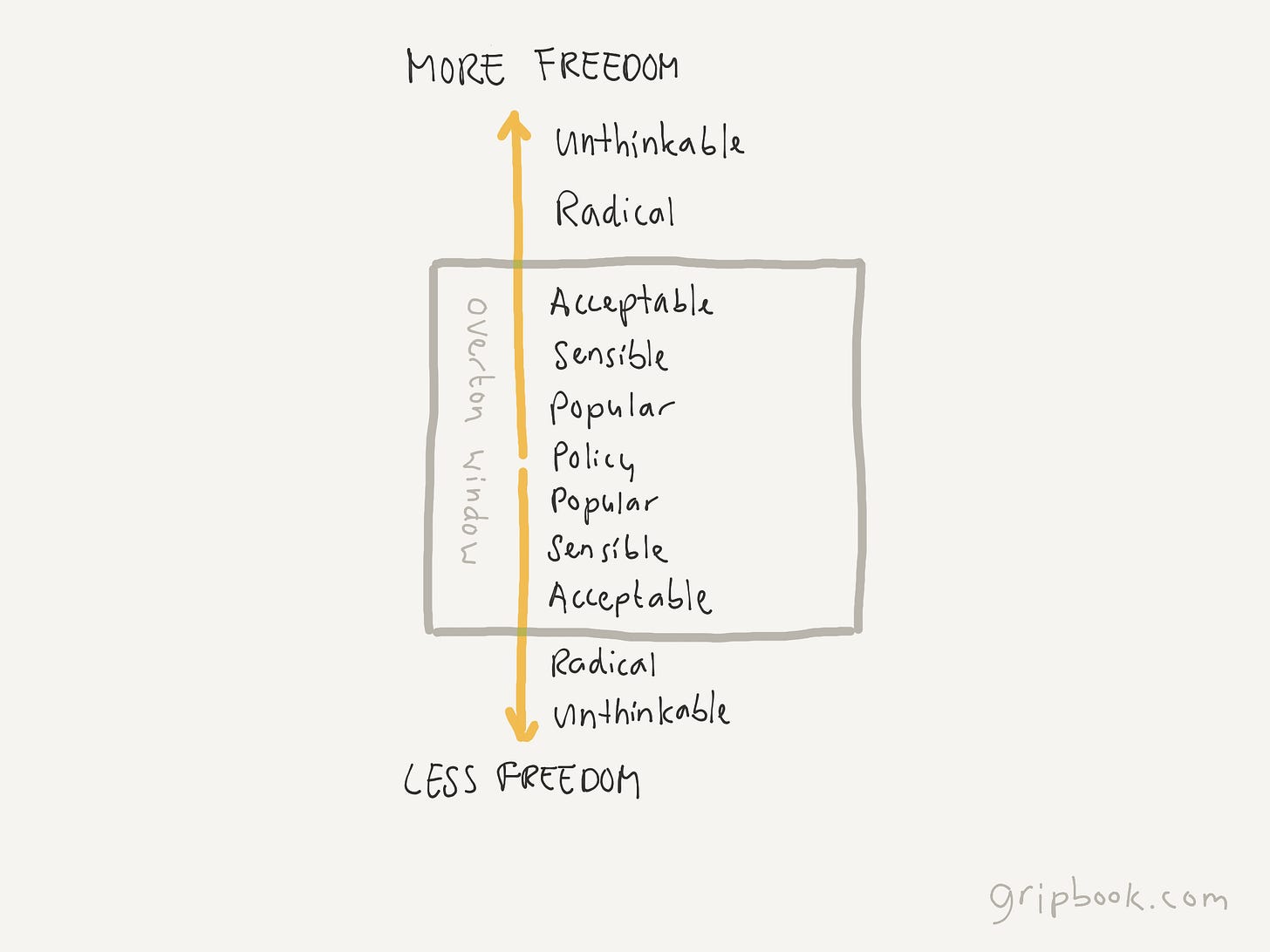Moving the Overton window
Hi there,
Are you familiar with the Overton window?
It frames the spectrum of ideas that are widely accepted at a given time. Take all the ideas out there and line them up, from extremely progressive to extremely conservative, and the window shows you which ones the general public finds sensible or at least palatable.
Radical or unthinkable ideas that fall outside this norm are seen as objectionable or shocking. Child labor is for many people today unthinkable. Slavery? Inconceivable. A universal basic income is radical.
You get the idea.
That looks something like this:
Some ideas that are seen as normal today were once inconceivable. When they were first proposed—abolishing slavery, for instance—people considered those ideas and their proponents crazy. Opinions about exploitation and repression eventually shifted, and that’s how the world changes.
Looking at your own life and work with this model in mind can lead to surprising new insight.
The Overton window and your work
Greater freedom or less freedom: not only relevant to political ideas, but also certainly relevant to your work. What would radical freedom mean in your job? What’s unthinkable? What would happen if you managed to automate or delegate all your work?
And the opposite prospect is also fascinating: What would your work look like if everything were prescribed and laid out in great detail? What quality standards do you require for your work? Is that wise? Acceptable? Or a tad extreme?
The Overton window and yourself
You can also apply greater-freedom-less-freedom to your life. Do you want to be free to organize your day as you see fit? Or do you prefer sticking to a schedule so you can hit bigger goals? Which perspective seems more “extreme” to you? Are the demands you make of yourself sensible, popular, acceptable, radical, or unthinkable? Do your financial obligations give you more freedom? Or less?
And you can take it to a more abstract level. If “financial independence” becomes the new normal, what would the next stage of radical personal freedom look like for you?
The Overton window and those around you
How we see ourselves and our fellow travelers isn’t fixed. What seems perfectly normal today may have been unthinkable in the past and may again be unthinkable in the future.
But with any extreme standpoint, I think it can be interesting to take a step back from the shock and disbelief, and try to determine what exactly is the extreme perspective.
My hypothesis: an extreme perspective that’s on the way out is less dangerous than one that seems to be gaining in popularity. That’s why I’m less concerned about the future of smoking (only a matter of time now) than I am about the future of the planet—where the extreme positions seem to be moving apart, instead reaching some sort of consensus, or tipping point).
The question then becomes: What radical perspectives do you see around you? And how can they stretch you and inspire new choices? Say, the perspectives of people who have given up flying, for instance, for the good of the planet. (Goodbye, freedom!) Or what about biohacking, where you tweak all kinds of things about your diet and daily habits to see if you can maximize brain power.
You can always find takeaways from other people’s perspectives, even when you think their ideas seem out there.
Something to think about this week. I’d love to hear about your own radical perspectives. Feel free to share!
Thanks for reading and have a good week,
Rick
produced by the language girl


